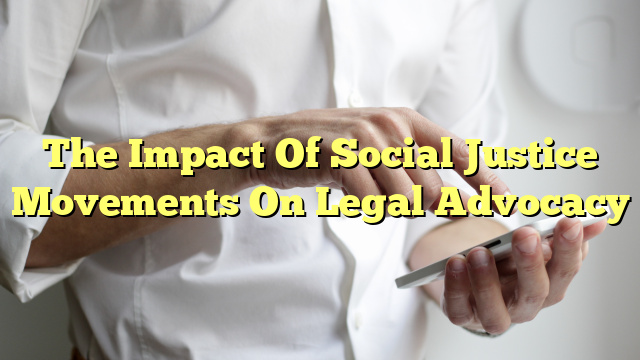Table of Contents
- What is the importance of social justice and advocacy?
- How are social justice and advocacy interrelated?
- What are the issues in advocacy and social justice?
- How does law influence social movements?
Social justice and legal advocacy have a long and interconnected history. The core values of social justice—equality, fairness, and equal access to resources—are essential to the successful delivery of legal advocacy services. As such, the impact of social justice on legal advocacy is crucial to the success of the legal system. This article will explore the relationship between social justice and legal advocacy, exploring the importance of social justice, the interrelatedness of social justice and advocacy, the issues in advocacy and social justice, and how law influences social movements.
What is the importance of social justice and advocacy?
Social justice is a core value of the legal system. It is the belief that all individuals should have access to the same rights, opportunities, and resources. Social justice is also the belief that all individuals should be treated with respect, dignity, and fairness. Thus, social justice is essential to creating a just and equitable society. It is also essential to the successful delivery of legal advocacy services.
Legal advocacy is a vital part of the legal system. It is the practice of advocating for the legal rights and interests of individuals, groups, and organizations. Legal advocacy services can include providing legal advice, representing individuals in court, helping individuals understand their legal rights, and advocating for policy change. The importance of legal advocacy is to ensure that individuals and organizations receive the justice they deserve.
How are social justice and advocacy interrelated?
Social justice and legal advocacy are interrelated in several ways. First, legal advocacy is a means to ensure that individuals and organizations receive the justice they deserve. By advocating for legal rights and interests, legal advocates can ensure that individuals and groups are protected under the law. Additionally, legal advocacy can be used to reform laws and policies to ensure that they are fair and equitable.
Second, legal advocacy can be a powerful tool for social justice. Through legal advocacy, individuals and organizations can challenge laws, policies, and practices that are oppressive or unjust. Legal advocacy can be used to defend the rights of vulnerable populations, challenge oppressive systems, and promote social justice. Thus, legal advocacy is essential to the fight for social justice.
What are the issues in advocacy and social justice?
The issues in advocacy and social justice are closely intertwined. One of the major issues in both advocacy and social justice is inequality. Inequality can manifest itself in various forms, such as unequal access to resources, unequal treatment under the law, and unequal opportunities for advancement. These issues can create unjust systems that are oppressive to certain groups of people and can impede their ability to achieve social justice.
Another issue in advocacy and social justice is the lack of access to legal services. Many individuals and organizations do not have access to legal services due to financial or other barriers. This lack of access can prevent individuals and organizations from receiving the justice they deserve. Thus, legal advocates need to be aware of these issues and work to ensure that all individuals and organizations have access to the justice they deserve.
How does law influence social movements?
Law has a profound impact on social movements. Laws can both facilitate and limit social movements. On one hand, laws can provide a framework for social movements to operate within, allowing individuals and organizations to challenge oppressive and unjust systems. On the other hand, laws can be used to limit the scope of social movements, preventing individuals and organizations from challenging oppressive and unjust systems.
Additionally, laws can be used to promote social movements. By reforming laws and policies, social movements can be empowered to achieve their goals. For example, laws can be used to promote equal access to resources, defend the rights of vulnerable populations, and challenge oppressive systems. Thus, laws can be a powerful tool for social justice.
In conclusion, social justice and legal advocacy are closely


From BLM to Me Too, social justice movements have been successful in driving legal advocacy and giving rise to meaningful change. Let’s keep pushing for an equitable society.
The article is an excellent overview of how social justice movements have proven influential in legal advocacy. As we look to the future, it’s important to consider how legal practice will be shaped by policy reforms that address broader inequities in society.